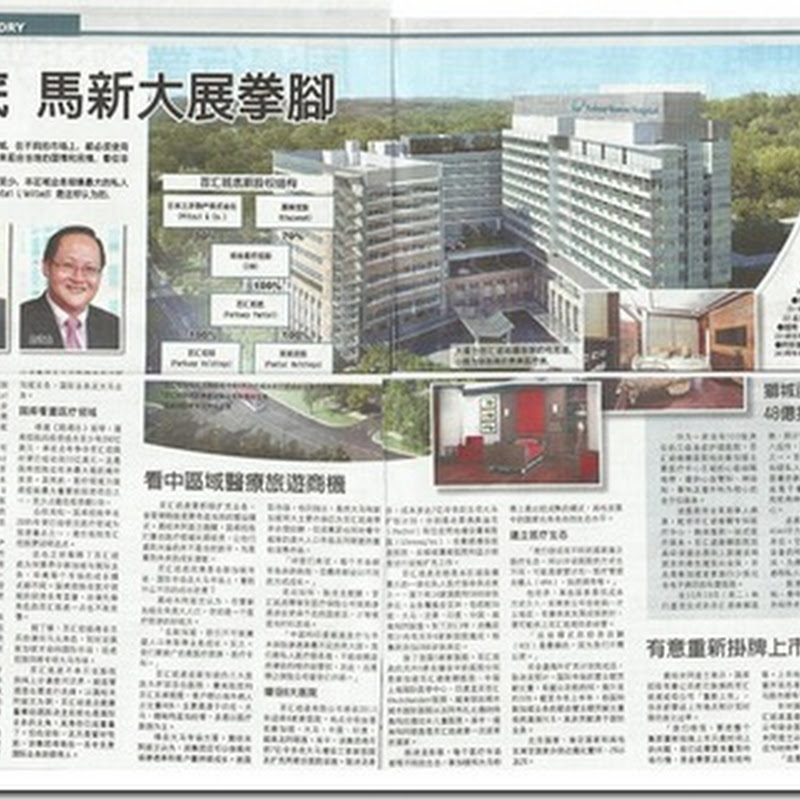Malaysia Smelting Corp Bhd (MSC) is the world’s third largest supplier of tin.
The current proxy to the tin-related sector on SGX is MSC’s parent, Singapore’s Straits Trading Co Ltd (STC), which derives about 80% of its income from the tin-related business through MSC.
The world’s largest tin company, China-listed Yunnan Tin Co Group Ltd, trades at a historical PER of 59.4 times, according to Bloomberg data. However, it should be noted that Yunnan Tin has far more extensive tin mining and exploration operations, whereas MSC is primarily involved in tin smelting, although it does have stakes in tin mines in Perak and Indonesia.
According to MSC’s prospectus for the SGX listing, the company’s revenues and profitability are highly dependent on the prices it receives for its refined-tin products and the prices it pays for its tin concentrates. In a rising market, a widening gap between tin concentrates and refined tin, as well as higher production volume, could help boost the company’s bottom line.
According to the company’s financial statements, tin represented some 77.3% and 80.8% respectively of MSC’s total cost of sales in FY09 ended Dec 31, and the nine months to September 2010.
Since refined tin is sold to end-user customers and traded on the international commodity markets, there is a ready market and pricing for refined tin.
A significant decline in tin prices between 2008 and 2009, together with the deterioration in the global economic situation during this period, resulted in the postponement or cancellation of certain projects by its customers.
Higher tin prices could also translate into significant additional funds to be furnished as security deposits by the company. The company says the quantum of security deposits is marked-to-market.
MSC is required to provide a deposit for its sales contracts that are outstanding as a security for the delivery of tin to its customers, in particular, brokers operating on the LME.
As at Sept 30, the security deposits MSC paid totalled RM31.7 million due to the increase in tin prices in the first nine months of 2010.
To recap MSC proposed a dual-listing exercise on the Singapore Stock Exchange (SGX). The company is a supplier of tin. MSC is mostly involved in iron, steel or aluminium alloys.
MSC has proposed one million public offer shares and a placement of 24 million shares to investors, including institutional and other investors in the country. It will raise gross proceeds of about RM104.25 million.
Based on a pre-offering share capital of 75 million shares, the RM4.17 per share values the company at some RM312.75 million. This translates to 4.5 times MSC’s FY2009 restated net earnings of some RM69.44 million as reported in the prospectus for the SGX listing. Using the enlarged share capital of 100 million shares, the implied PER is six times.
The offer price also translates to a 12% premium to MSC’s net asset value of RM3.73 per share as of Sept 30, 2010. This is in comparison to STC’s shares, which are trading at a 20% premium to its book value of S$3.37 per share.
Based on its prospectus, MSC says its public shareholding will be higher at 43.88% after the offering, from 25.18% initially. STC, meanwhile, will own 54.84% in MSC immediately after the public offering, from 73.12% previously, based on a share capital of 100 million shares.
MSC’s move to list on SGX is therefore with the hope that investors there will appreciate the counter better than those on the local bourse.
There is plenty of room for MSC to grow, given its position as the world’s third largest supplier of tin, producing more than 43,500 tonnes in 2009.
It posted a net loss of RM58.2 million in the nine-month period ended Sept 30, 2010, mainly due to impairments on investments in subsidiaries totalling RM121.63 million.
The company says it intends to use the proceeds for developing new mines in Malaysia and Indonesia, buying plant and machinery and general working capital.






















































No comments:
Post a Comment